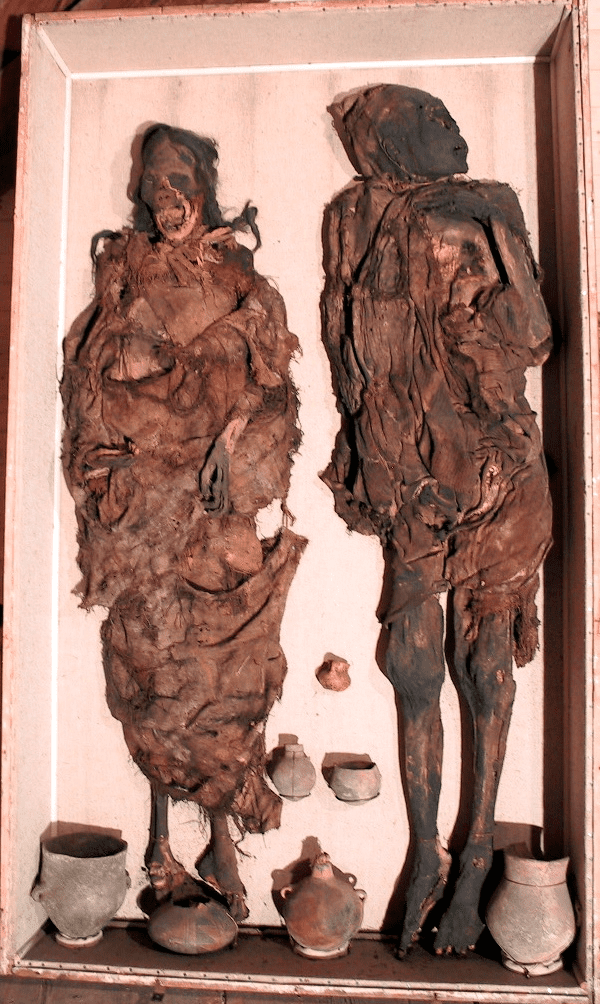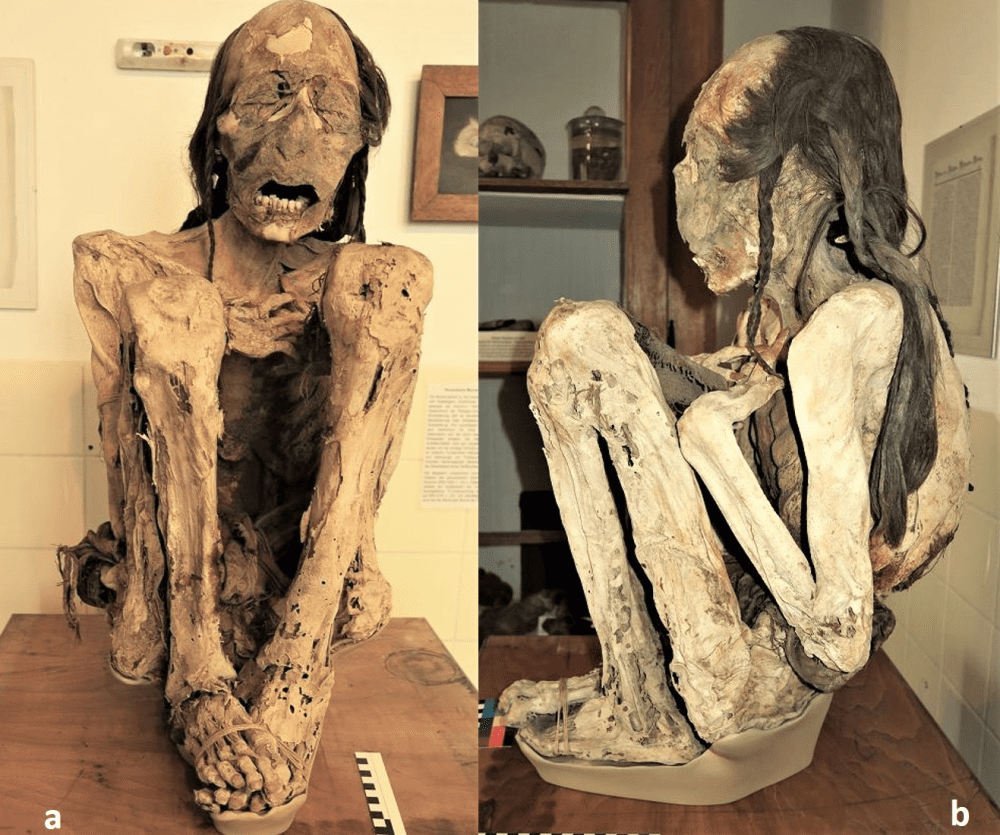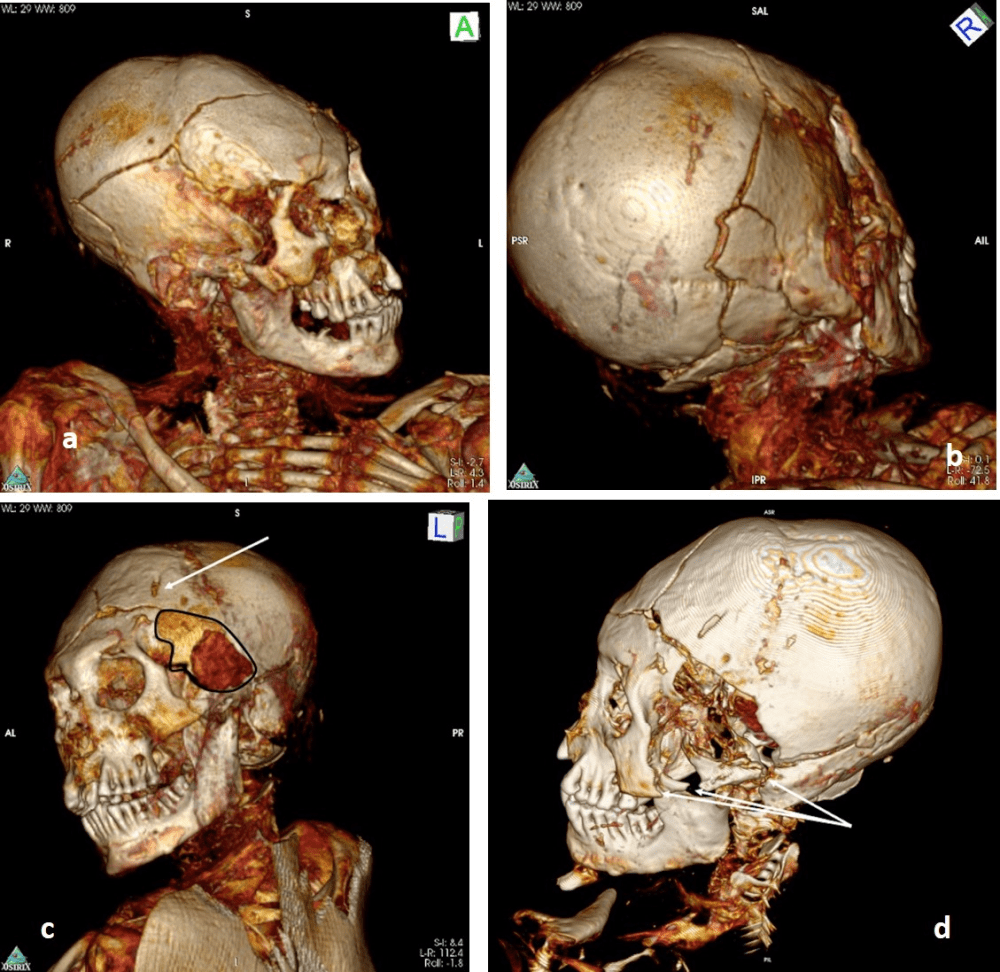In true crime, you get cold cases and then you get the really, really cold cases, like that of the deaths of two mummies who were killed between 740 and 1,120 years ago. While their cause of death might not be of much interest to whoever their now-relatives are, they do pose an interesting challenge for scientists doing a little detective work.
In a new study published to Frontiers In Medicine, researchers were able to conduct something of a virtual autopsy using their mummified remains. You might wonder what detail could possibly be left after more than 1,000 years, but the fact that they are more than just skeleton provides a little extra wiggle room for discovery.
Trauma from violence was found to be present in 21 percent of males within a sample of pre-Columbian remains in a recent review, so it wouldn’t be surprising to find similar evidence for these specimens. One, the Marburg mummy, hailed from a fishing community in the Arica culture of what’s now known as Chile.

The “Delémont man” (right) and the “Delémont woman” (left) in their repository case. Image credit: A-M Begerock, R Loynes, OK Peschel, J Verano, R Bianucci, I Martinez Armijo, M González, AG Nerlich
And the other, the Delémont mummy (found as part of a pair alongside a female), came from the Arequipa region of today’s Peru and was buried in an unusual fashion for the time: face-up.
Researchers on the new study put the mummies through a 3D computed tomography (3D CT) scan to examine the remains and look for signs of violent trauma. Sure enough, they found that both male mummies had died from extreme and intentional violence.

The Marburg male mummy. Image credit: A-M Begerock, R Loynes, OK Peschel, J Verano, R Bianucci, I Martinez Armijo, M González, AG Nerlich
The Marburg mummy is thought to have been murdered in one of two ways: “One assaulter hit the victim with full force on the head and [a] second assaulted … stab[bed] the victim (who still was standing or kneeing) in the back,” the authors write in their paper.
Alternatively, “the same or another assaulter standing on the right side of the victim struck the head and then turned to the back of the victim and stabbed him.”

3D CT scan of the skull of the Délémont male mummy. Image credit: A-M Begerock, R Loynes, OK Peschel, J Verano, R Bianucci, I Martinez Armijo, M González, AG Nerlich
Ouch. And things didn’t look much brighter for our Delémont man who showed “massive trauma against the cervical spine which represent most likely the cause of death. The significant dislocation of the two cervical vertebral bodies itself is lethal and may have led to immediate death.”
A nasty, but perhaps mercifully quick end, then, and one which has enabled scientists to conduct detective work in ways that would not have been possible with similarly aged specimens.
“Here we show lethal trauma in two out of three South American mummies that we investigated with 3D CT,” corresponding author Dr Andreas G Nerlich, a professor at the Department of Pathology of Munich Clinic Bogenhausen in Germany, said in a statement. “The types of trauma we found would not have been detectable if these human remains had been mere skeletons.”
“The study of human mummified material can reveal a much higher rate of trauma, especially intentional trauma, than the study of skeletons,” Nerlich concluded. “There are dozens of South American mummies which might profit from a similar investigation as … we did here.”
Source Link: Brutal Murder Of South American Mummies Revealed In 3D CT Autopsy